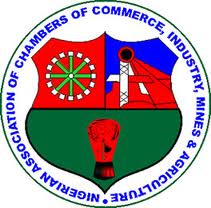The Nigerian Association of Chambers of Commerce, Industry, Mines and Agriculture (NACCIMA) has said that that the first quarter of 2015 will be rough for businesses and the entire economy due to the prevailing macro-economic indicators.
Briefing the press on Tuesday in Lagos on socioeconomic issues affecting the nation, Chief Bassey Edem, 1st Deputy National President of NACCIMA, called on business operators to buckle down. According to him, ” If we are concluding 2014 on a faltering note because of falling crude oil prices and devalued naira, we should all be ready for a challenging 2015.”
He disclosed that as a result of the high interbank exchange rate of N185/dollar as at 22nd December 2014, and the 13 percent Monetary Policy Rate (MPR) as against 12 percent at the beginning of the year, businesses have reported increased production cost because they are spending more money to bring in their raw materials.
“As can be seen, the macroeconomic fundamentals are less stable than they were in the 1st half of this year and this has serious implications on the progress of the real sector of the Nigerian economy,” he said.
The NACCIMA chief also warned that other challenges local businesses will grapple with next year is the ECOWAS Common External Tariff (CET).
“While we appreciate the need for the ECOWAS CET, we are also concerned about the fact that our borders will be thrown open to influx of goods from within the West African region come January 2015 when the ECOWAS CET becomes operational.
“This is another challenge to our growing industries that are currently battling with the devaluation of the naira amongst other challenges.
“The need to ensure compliance with all protocol signed by ECOWAS to eliminate dumping of goods in the region becomes of great importance if our growing industries are to survive with the implementation of ECOWAS CET and for the realization of the Nigeria Industrial Revolution Plan.
“It is also important to note that the ECOWAS Trade Liberalisation Scheme (ETLS) requires government’s serious commitment in its implementation, as a lot of our private sector exporters complain of frustrations encountered with the implementing agencies at the borders,” he said.
On how to surmount these challenges, the NACCIMA boss said, “We counsel that the Federal Government should initiate policies that will create enabling environment for investors to look inward for investment opportunities, while working towards reducing the MPR to a single digit.”
Copyright Ships & Ports Ltd. Permission to use quotations from this article is granted subject to appropriate credit given to www.shipsandports.com.ng as the source.

